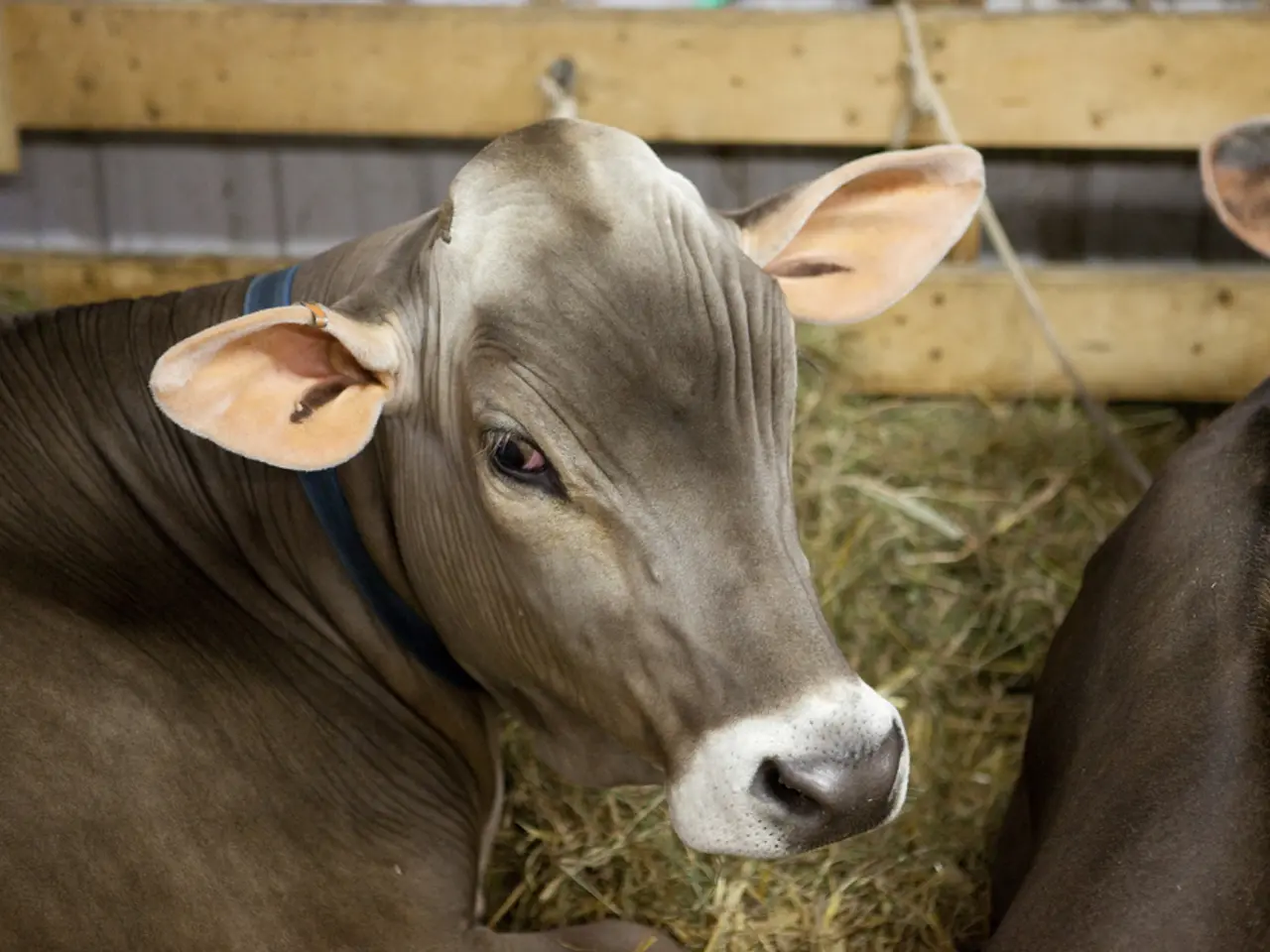Genetically engineered cows producing altered milk
In the realm of food technology, a significant development has been the creation of transgenic cows by AgResearch in New Zealand. These cows are genetically modified to produce milk with enhanced levels of kappa casein, a protein crucial for cheese production and quality.
Kappa casein, a key component of milk, plays a vital role in enhancing milk's clotting properties, thereby improving cheese yield and quality. The primary objectives of these transgenic cows include increased cheese production efficiency, potential improvements in nutritional profiles, and economic benefits for dairy processors and farmers due to higher value dairy products.
The technology employed by AgResearch involves precise gene editing or transgenic insertion to elevate kappa casein expression in the mammary glands without affecting overall cow health or milk volume. Potential applications of this technology span various sectors, including dairy products with enhanced cheese yield and texture, specialty cheeses with tailored functional properties, and industrial dairy uses requiring optimized milk protein compositions.
However, when searching for specific details regarding the current status and applications of this technology as of August 2025, no relevant search results were found. To gain a more current and detailed understanding, one would need to access recent AgResearch publications, communications from New Zealand regulatory bodies, or AgResearch itself.
It is essential to note that the deployment timelines for this technology may be affected by GMO regulatory and market considerations. New Zealand consumers, while generally wary of the use of transgenic technologies in food production, are more accepting when they produce therapeutic proteins for disease treatment.
AgResearch's pioneering work in this field dates back to 2000, when they generated the first transgenic cows, producing modified or 'designer' milk. Since then, multiple generations of transgenic cows with the transgenic casein lines have been produced at AgResearch's Waikato containment facility.
Casein, which makes up about 80% of the total protein in cow's milk, is particularly important in cheese making due to its nutritional value and processing properties. The milk from transgenic cows had a slightly yellowish tinge due to smaller casein micelles, affecting the milk's light scattering properties.
The first transgenic cows had extra bovine (cow) kappa casein genes inserted in their genome. As a result, the milk from these transgenic cows contained double the levels of kappa casein compared to control cow milk. This research marked the first proof that transgenic technology could be used to modify milk composition in cows.
In light of the ongoing developments in this field, it is crucial for New Zealanders to engage in discussions about transgenic technologies, considering ethical concerns, animal welfare, food safety, labelling, and regulations. As the potential benefits of this technology extend to animal health, disease prevention, human health benefits, and milk processing into dairy products, it becomes increasingly important to stay informed and engaged in this evolving area of research.
- Apart from cheese production, researchers might explore the potential for transgenic cows to produce milk with improved nutritional profiles for healthier diets.
- Incorporating CBD into a healthy diet, alongside other supplements, could offer beneficial effects for managing chronic medical conditions, such as chronic kidney disease and other chronic diseases.
- Critics of food technology argue that the use of transgenic technology in food production, like transgenic cow milk production, may pose potential risks to consumer health and animal welfare.
- The fitness and exercise industry often promotes certain diets, such as specialty cheese diets, for individuals seeking to optimize their nutrition for improved health and wellness.
- Recent studies suggest that a combination of CBD, a healthy diet, and regular exercise could aid in the prevention and management of chronic diseases, enhancing overall health and wellness.




